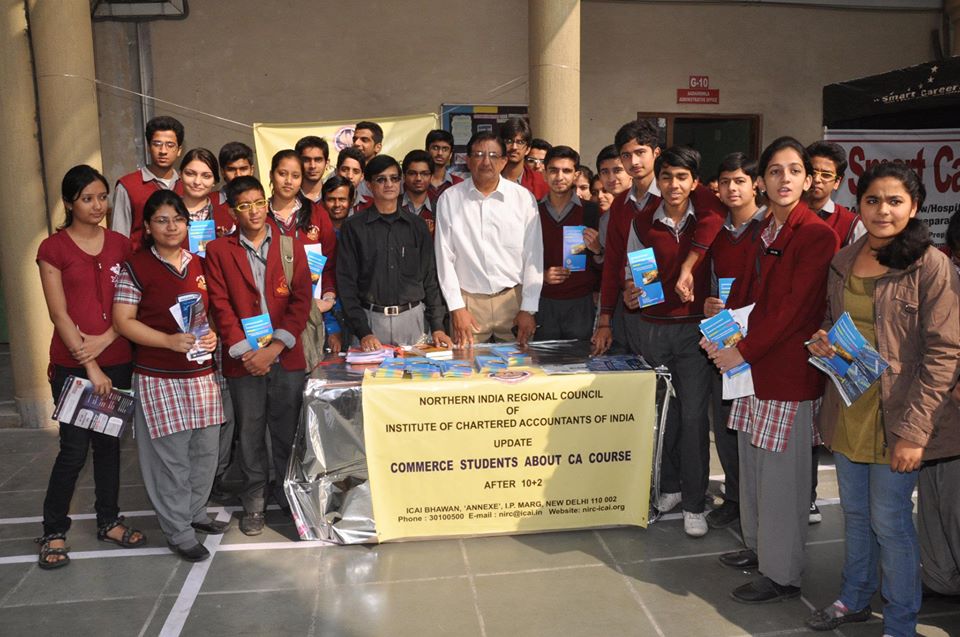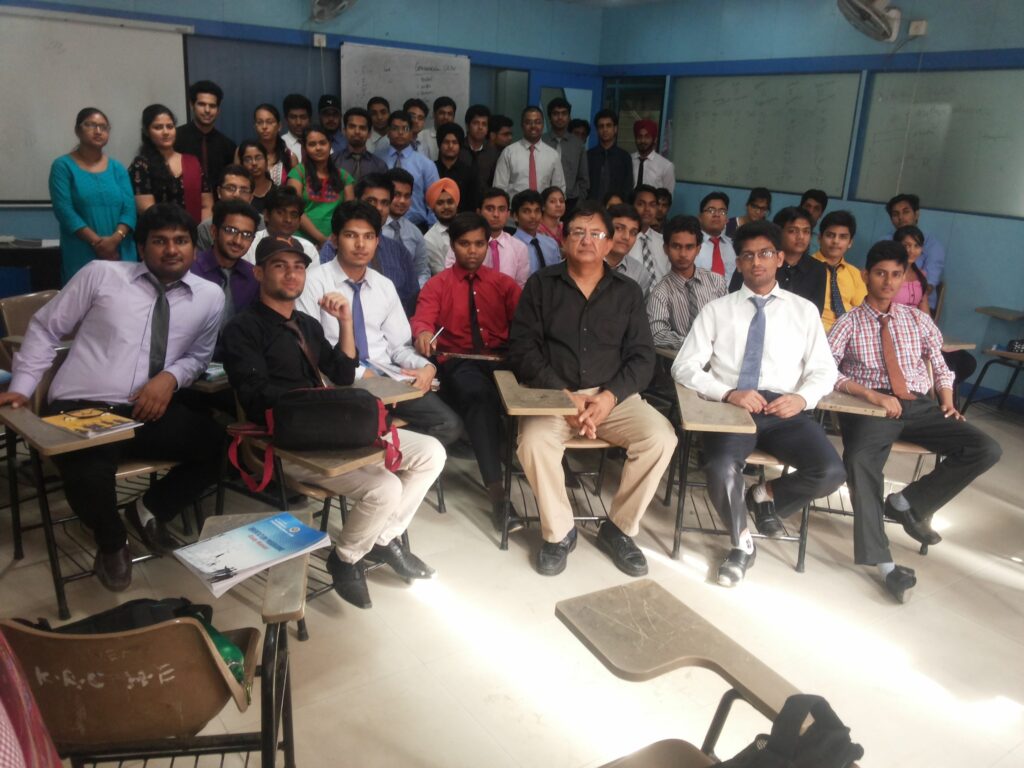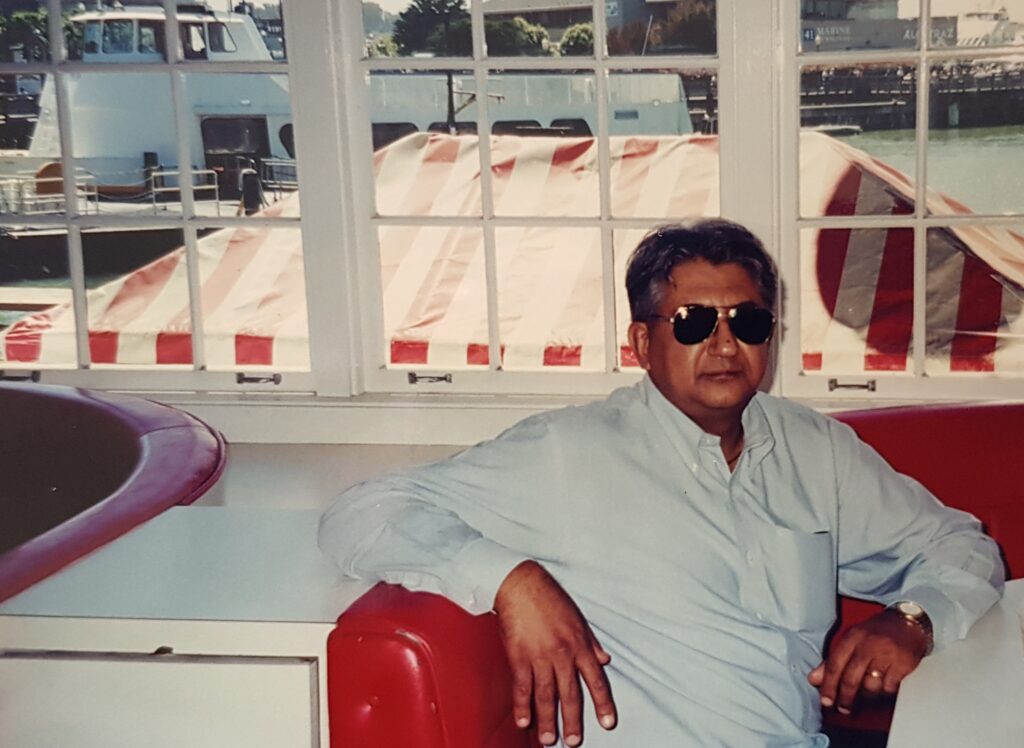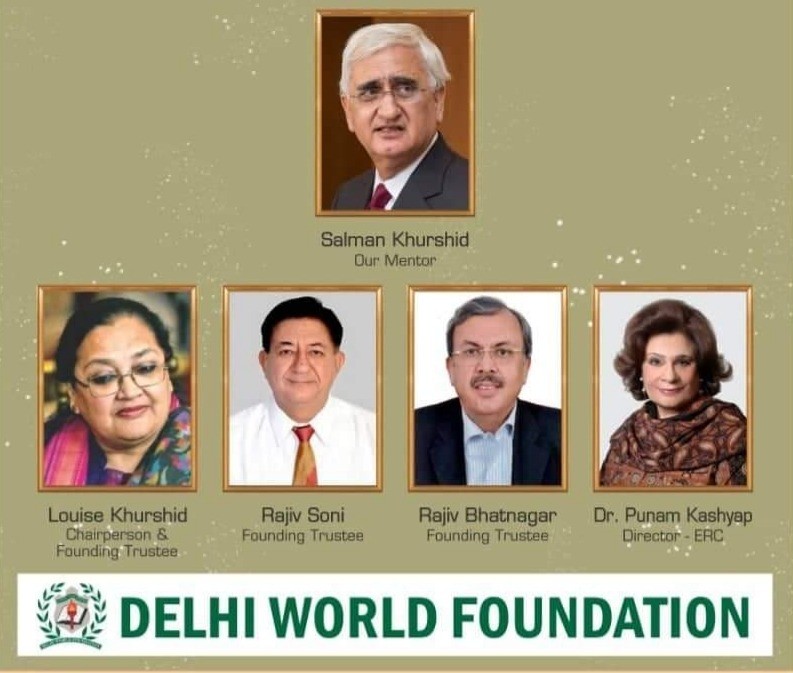INDIA. Gurugram. Rajiv Soni is really the man for all seasons. A pioneer in the true sense of the word, he has always been ahead of his time. Soni, a chartered accountant by profession, has had a fascinating journey right from his early days with ITC. He likes to don multiple hats. Other than a student mentor, he is also an author. His first novel “Seher” tells the journey of an empowered 21st century millennial from the glamworld of stilettos and beauty pageants to training in deep muddy trenches. His second novel “Aaliya” is essentially a multicultural love story. As a head of an IT company in the 1980s, he pioneered Oracle technology training in India back in the 1980s. Around the turn of the millennium, Soni suddenly decided to close down the IT business and decided to shift to the US where he had to once again start from scratch. Struggling to find work in a new country in a time of great uncertainty, he took a job at a store owned by a Pakistani where he did everything from dusting to cleaning. About four months later, Soni landed with a high paying job in San Francisco at a mortgage firm before a letter from his father made him pack things up and return to India 5 years later. For the last several years, he has been living with his parents in Gurugram where he also runs a successful coaching centre.
In this exclusive interview with Transcontinental Times, Rajiv Soni talks about his innovative teaching methods, the ups and downs of his multifaceted professional journey, his association with Delhi World Foundation, and his upcoming book which deals with the subject of passive euthanasia.
Excerpts
Q1. You have been teaching high school students for well over a decade now. What all subjects do you specialize in? How has the teaching process evolved with the advent of technological tools and digital platforms?
A. In the High School segment, I teach Commerce subjects: Accounts, Economics, and Business Studies. In CA students segment, I teach Soft Skills (including Employable Skills).
The introduction of technology has greatly expanded access to education. From easily understandable instructional materials to enabling new ways of learning, there has been an unprecedented advancement for students to learn. Books, audio tapes, videos and now online classes are all making schools and education institutions redesign the learning spaces using technology as an enabler. How much this has contributed to making better human beings—more compassionate with more common sense is anyone’s guess!
In my opinion, it would be great to use technology for preparing the material, and even transmission via the net but the actual teaching should be face-to-face for best results.

Q2. What is your general approach to teaching? Tell us about the various challenges you encounter while teaching?
A. My approach to teaching is: ‘Let the Learner learn‘.
The more one tries to teach, the less a learner will learn.
Learning is like discovering the joys associated with it. Learning must be intuitive, inspired, comfortable, and desired by the soul. I run a Coaching Centre in Gurgaon where I practice the above.
As for challenges, the student today is very quickly bored, easily distracted and unable to retain beyond end-of-class. I take extra time in explaining the whys and hows of a principle or concept and that remains with my students for a very long time. I sometimes tell a story to explain a concept in Accounts or Economics- and though my students find it amusing at that point in time, the matter sticks in the mind. For years!
I am always ready to teach underprivileged children.
Q3. Online teaching has become the norm during the COVID-19 times. How do you see it vis-à-vis the time tested classroom teaching?
A. Online teaching has become the norm during the COVID-19 times because of TINA (There Is No alternative).
Sure, online learning allows one to study wherever and whenever one wants, but it requires more self-direction and self-discipline because lack of face-to-face interaction. The best model would then be a judicious mix of the two methods as while there is saving in infrastructure costs, commute/ travel cost… there is an incalculable cost of health. There will be eye strain, carpal tunnel syndrome, cervical spondylosis—all much sooner than later.
Abrupt shifting of gears will stall the process of learning so I would suggest if online teaching is to be the norm then let it evolve for the next generation. Slow and steady will make it happen.
Read ‘Yeh Saali Aashiqui’ Actor Kamal Rexwal Is Driving A Cab To Earn Livelihood In COVID-19 Times
Q4. You have had a fascinating journey right from your early days with ITC. Since then you have donned multiple hats. Other than mentoring students you have written books, run IT companies, and operated health food counters, among other things. Which of it have you enjoyed doing the most and why?
A. ITC Ltd. is a great company to work with—the best in India. Totally professionally managed and rewards directly commensurate with effort. Yes, I was fascinated with founding a technology company in 1989 and so ventured out into the simply complicated world of technology in India.
Looking back, I would say that what I have enjoyed most is mentoring students because that involves a quick jog down memory lane and back at the speed of thought because questions from students must be answered on the spot. But, not with what I call ‘I-am-telling-you-so’ approach. They are already getting that approach from their parents, teachers, and tutors; and they hate that. One has to have had the experience of life in real terms and get them to trust you before they begin to listen. One not only has to be seen to be trustworthy, but one has to be so too.
Writing is a close second because it gives me freedom on the one hand and extracts responsibility on the other. I do not write to please all but I also do not wish to offend, instigate, enrage or hurt sentiments. I write real life drama but there is no such category in the books industry. It’s Fiction. And fiction is defined as: ‘literature in the form of prose, especially novels, that describes imaginary events and people…’ But all my literary works are true events and happenings.
The best thing about a food counter is that its cash business; you can buy on credit and so there’s no need for working capital. No bad debts either. And it’s a great feeling to carry cash in the pocket back home late evening.

Q5. You were one of the pioneers of Oracle technology training in India. What was it like to be an IT guy in India back in the ‘80s?
A. Challenging! And distracting! Raised up in an army family in Delhi, we were trained with different set of systems and procedures; perhaps not the best to get into business in India.
Yet, we carved out a niche as our team of 20 was highly motivated, well knit and envied by competition.
The reality is, and I am not hesitant to say, TCS, the sole distributor of the RDBMS Oracle were clueless on how to install it. It was our company CEO who rolled up his sleeves and took 3 days to install it; TCS wanted to know how it was done.
Also, NIIT, a big name in computer training then, would send decoy customers to us to get a copy of our painstakingly made original training material.
IT is based on passion, a desire to change the way 7 billion people work, live and think. And the two top qualities of an entrepreneur listed by Google are discipline and integrity. Maybe, we need to introspect why none of our so called top IT companies have developed one IT product that has a global footprint.
Q6. You suddenly decided to close down the IT business and decided to shift to the US around the turn of the millennium. What was it like to be suddenly struggle for work in a new country amidst great uncertainty?
A. Fighting predators and the system of favors-for-software-contracts became too much to handle. I enjoy difficulties but this was turning into a waste of time.
Going to the US to work, showcase my professional capabilities and earn commensurately was a long cherished dream, and I thought I would never get another opportunity. But at 40, I couldn’t have chosen a worse time to go there when there was nationwide economic recession and the entire bay area was seriously reeling under a spate of lay-offs from employment.
Right from the word go on arrival, I knew I was balancing on a thread, each day bringing a new challenge mostly pointing me to return.
The first month went by looking for employment, rather ‘pay stubs’, and it was like exploring the jungles of South America searching for gold, drifting down the Amazon River on a raft.
Q7. You worked at a store owned by a Pakistani in for four months and did everything from dusting to cleaning. How was this transition from running a pioneering IT company in a developing country like India to doing menial work at a store in a technologically advanced county like the US?
A. Yes, Aslam Khan was kind and gave me work when no one else did. His nationality was not of concern to me, nor was his religion. He helped me stay afloat at a critical juncture in my life and for that I will always be grateful to him.
It was unskilled labor work; I swept and cleaned his large grocery store, picked up heavy cartons and moved them around.
My father’s words rang, “There are the latent powers that we all possess—energy, skill, sound judgment, creative ideas; but physical strength and endurance in all of us is far greater measure than most of us realize.”
All that work strengthened my triceps, taught me dignity of labour, and introduced me to spirituality. Every day I learnt a new lesson in patience, understanding, appreciation, gratitude, perseverance, anger management, dealing with disappointment, frustration, niggardliness, the power of hope and prayer… that there was a deeper plan being executed… that what I thought was suffering was actually learning. No guru required!

Q8. You subsequently landed with a high paying job in San Francisco at a mortgage firm. How did that materialize? What was the nature of your work there?
A. I had put in hundreds of applications, but to no avail. Without a job, not yet driving, not comfortable cooking, and without any experience of using three ‘Life Saver’ gadgets in USA (microwave, laundry machine, dish washer) how was I going to survive? Since nothing much was working out, I decided to return to India.
But then again, Dad’s words rang in my head, ‘BBAMFWHY’- Be Bold and Mighty Forces Will Help You. He would say, “Boldness is a deliberate decision, from time to time, to bite off more than you are sure you can chew.” It wasn’t an exhortation to be reckless or foolhardy. And so, “When there’s nowhere to go but up,” he said, “there was a very good chance that you jolly well go up!”
Providentially, I bumped into John at a lunch counter restaurant. We landed up at the same table and got talking over lunch. At the end he casually asked if I would like to work with him. Turned out he was a mortgage broker, had 400 employees in 5 offices in the Bay area and was looking for a finance resource to help him build his business to a 1000 employees in 10 cities. He was 30, had fire in his blue eyes and was very clear in his tone. I was determined to be of use to him.
In the next couple of years, I came face to face with the American work system in full force. It was one man’s crusade for himself—not selfishly, but to prove that nothing is impossible—not even succeeding in the US (in year 2002) when the American job market ignored me, daily-life culture scoffed at me, and the American woman… she rebuffed me. (Being an Indian I would not hesitate to bow in front of an octogenarian grandparent and that puzzled, even put off, quite a few women there.)
Q9. You suddenly decided to come back to India about 5 years later even though you were enjoying a great run in the mortgage firm. What was the trigger behind your decision?
A. A letter from my father (an army officer, a brave and patriotic Gallantry Award recipient in 1965 conflict) where the sub-text was that he and mom were missing their two sons… my younger brother and me… even as their own emigration to the US was confirmed. Being single, I wound up my life in America in less than a week and returned.
Having savored life from various angles, enjoyed its bitter sweet moments, I haven’t the slightest remorse of giving up the world’s most beautiful city, San Francisco, for vegetarian dinner at 8 pm sharp with parents, rising at 5am to inhale fragrant air.
If I can’t honor the people who brought me into this world and tended for me in all my years of growing up and who I see 24×7 365 then how can I be devoted to any God whom I have not really seen at all?
No, I am not 75… that’s a long way yet. And, no, I don’t have a broken heart either!
I have a fuller heart.
Q10. How did you get associated with Delhi World Foundation. Also tell us about your level of involvement in the day to day activities of the trust?
A. In Aug 2015 a group of prominent Delhi Public School (DPS) alumni got together and set up Delhi World Foundation with a transparent commitment to ‘equity for all’, cutting edge technology combined with the human touch and uniqueness of the ‘teacher taught’ bond of the DPS experience.
The Foundation represents excellence and innovation in Education with Chief Mentor Mr. Salman Khurshid and Chairperson Mrs. Louise Khurshid being the guiding spirit in 54 running schools pan India with 30 more MOUs signed for 2020/2021.
As one of the Founding members of Delhi World Foundation and a Life Member, I work voluntarily in the Foundation’s endeavours in a noble, growth oriented and productive experiment for excellence in education, assisting in monitoring growth of a school, right from barren land to student enrollment.

Q11. What can we expect from your upcoming book? When can we expect it to be out?
A. Having sent “Esha” out to publishers seeking their interest, I am endeavouring to complete my fifth book “Let Go” by the end of 2020.
“Esha” is the story of the angst of a young woman in modern India caught in an abusive marriage and of her dilemmas and struggle towards newly found self esteem as she participates in her own rescue.
“Let Go” is a sensitive and heartbreaking account of constant internal conflict over 38 days covering patient’s choice, family and friends, religion and ethics and the doctor’s Hippocratic Oath.

The fulcrum is the Living Will (different from a Will); it specifying End-of-life Care and is fast gaining importance in India. A core committee has been formed at AIIMS, New Delhi to facilitate a dignified dying process for patients who are at the ‘end of their life’.
The story is based on passive euthanasia and different from ‘Whose Life Is It Anyway?’ and ‘Guzarish’ which are based on active euthanasia.
You can read more about Rajiv Soni’s literary works at:

